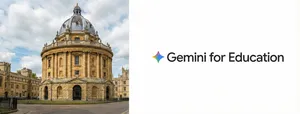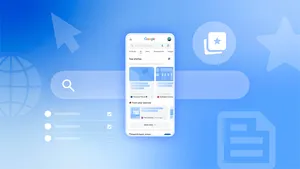Here’s how local news in the UK is using News Showcase

Editor’s note: This is part of our ongoing series featuring local publishers from around the world using Google News Showcase, our new product and licensing program for publishers, the Google News Initiative and other products and features. Read more in our series, from CityNews in Italy and ADIRA in Argentina.
DC Thomson is one of the UK’s leading media companies. Headquartered in Dundee, Scotland, it has been publishing newspapers and magazines for well over 100 years. We’re a privately owned, family-run business with people, customers and communities at the heart of our operations. In addition to our newspaper and magazine portfolio, we also publish classic titles such as the comics Oor Wullie, The Broons, The Beano and Commando, and have been diversifying into digital technology, radio, TV and events. Using audience insight and data, we create content and experiences that connect with our customers and build loyal communities. One of the new ways of working that is helping us to more deeply engage with readers is Google News Showcase, which we joined in February of last year.
Since we launched our content on Google News Showcase, we’ve been serving both paywalled and non-paywalled content from our titles, such as The Courier and The Evening Telegraph, the Press & Journal and Evening Express, and The Sunday Post, to readers. News Showcase allows us to decide how our content appears on Google News and on Discover, a Google service that allows people to customize their feed to match their interests. We publish and curate several news panels throughout each day, which allows us to tell stories differently, expand on a topic and give our readers and new audiences different ways into the news. It gives us additional opportunities to continue to more deeply engage our readers and help them understand important stories.
Working with Google to re-focus on our audiences
Through the Wan-IFRA's table stakes program supported by the Google News Initiative (GNI), we learned how to better serve audiences with the content they were looking for, on platforms they are already using and in the moments when they want it. We discovered how to turn occasional users into subscribers, create revenue from those new audiences, build partnerships with third parties to expand our skills and drive audience growth. We transitioned from being 95% print focused to being truly audience focused, serving outstanding digital content.
Delivering interest-based content
We achieved all this by reorganizing our newsrooms to create 10 small, specialized “Mini Publisher Teams,” each serving a variety of distinct audiences, with content including food and drink, nostalgia, transport and environment, crime and courts and health and wellbeing. The teams have the autonomy to make data-driven decisions relating to their content and are encouraged to be creative in how they produce it — all with the aim of increasing engagement and moving users through the funnel to becoming loyal subscribers.
An example of one of the visualizations created by a DC Thomson publication.

By focusing on content verticals, investing in digital journalism like podcasts and video, and testing out data visualization tools, we have seen newsletter sign ups grow by 68% over an 18 month period.
Another example of one of the visualizations created by a DC Thomson publication

Improving how we monetize and curate news to deepen engagement with audiences
One of the biggest challenges companies like ours are facing right now is finding new sources of revenue. The digital transformation inspired in part by the GNI program enabled us to produce ever more compelling premium content that was valued by our readers. For example, on The Courier we have locked more premium content and premium content now accounts for 85% of sales, almost doubling in volume. The result: after starting the programme with a few hundred subscribers we now have a five-figure subscriber base.
Sustainable growth through subscriptions
Most recently we participated in the Subs Lab Europe, an eight-month program run by the GNI, the International News Media Association (INMA) and FT Strategies. The Lab has changed our way of working and now we focus more on cross-functional experimentation — even when we don’t know the answer to a particular challenge. We ran a number of experiments during the program with meaningful results: we grew subscription sales by more than 180% in 8 weeks after once again experimenting with content behind our paywall. We increased the proportion of annual subscriptions sold by 400%. And we launched five new newsletters, which quickly earned the best open and click-through rates in The Courier’s portfolio.
Together, Google News Showcase and these GNI programs are helping us to shape our business plan for the next 18 months. They’re enabling us to get more economic value from our quality journalism, reach and engage new audiences and grow our subscribers at an important time for the news industry.




